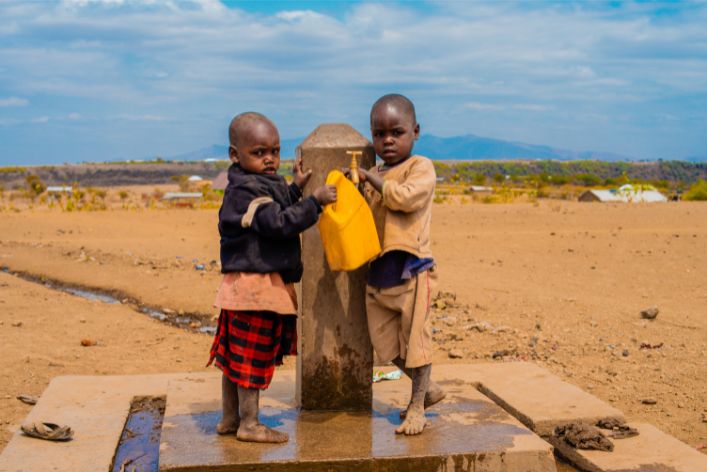Introduction
Childhood vaccination is an essential aspect of preventing deadly diseases in individuals. The process involves administering vaccines to children to provide immunity or protection against infectious diseases.
In Nigeria, vaccination is a crucial element in the country’s healthcare system, and the Nigerian government has made considerable efforts to ensure that children receive adequate vaccinations. The vaccination schedule in Nigeria comprises various vaccines administered at specific times from birth to adolescence.
The Nigerian vaccination schedule has evolved over the years, and the current schedule covers the essential vaccines recommended by the World Health Organization (WHO) for children. The mandatory vaccines in Nigeria include Bacille Calmette-Guerin (BCG), Oral Polio Vaccine (OPV), diphtheria, pertussis, tetanus (DPT), measles, hepatitis B, yellow fever, and meningitis A.
The vaccination schedule in Nigeria starts at birth, and the BCG vaccine is administered to protect against tuberculosis.
- At six weeks, the child receives the first dose of OPV, DPT, Hepatitis B, and Hib vaccines.
- At ten weeks, the second dose is administered along with the oral polio vaccine.
- At fourteen weeks, the child receives the third dose of OPV, DPT, Hepatitis B, and Hib vaccines, alongside the oral polio vaccine.
- At nine months, the child receives a measles vaccine and a yellow fever vaccine at twelve months.
Also, there are other vaccines that children can be given depending on the regions in Nigeria. These vaccines include pneumococcal conjugate vaccine (PCV), rotavirus vaccine, and meningitis A vaccine.
In short, childhood vaccination in Nigeria is essential in preventing the spread of deadly diseases. Parents should ensure that their children receive all recommended vaccines to protect their health throughout their lives. Governments should continue to provide vaccination programs that are accessible and affordable to all.
Recommended Vaccination Schedule for Infants
It is crucial for infants to receive the recommended vaccinations as they help protect against a range of potentially fatal diseases. Here is a list of the vaccines recommended for infants, the ages at which they should be administered, and the importance of following the schedule.
List of Vaccines Recommended for Infants
- BCG Vaccine (against Tuberculosis)
- OPV Vaccine (against Poliomyelitis)
- DPT Vaccine (against Diphtheria, Pertussis and Tetanus)
- Hepatitis B Vaccine
- PCV Vaccine (against Pneumococcal Disease)
- Rotavirus Vaccine
- Measles Vaccine
- Yellow Fever Vaccine
Recommended Ages for Each Vaccine
- BCG Vaccine – administered within the first week of birth
- OPV Vaccine – at 6, 10, and 14 weeks of age
- DPT Vaccine – at 6, 10, and 14 weeks of age
- Hepatitis B Vaccine – at birth, 6 weeks, and 10 weeks of age
- PCV Vaccine – at 6, 10, and 14 weeks of age
- Rotavirus Vaccine – at 6 and 10 weeks of age
- Measles Vaccine – at 9 months of age
- Yellow Fever Vaccine – at 9 months of age
It is essential to follow the schedule and ensure the vaccines are administered at the recommended ages to provide maximal protection for the child.
Importance of Following the Schedule
The recommended vaccination schedule for infants is critical to ensure that they are protected against diseases that can cause lifelong injuries or even death. Children are vulnerable to infections due to their immature immune system, and vaccination provides protection by strengthening their immune system to fight off the infections.
Delaying or missing vaccines can increase the risk of infections in children. For instance, without vaccination, babies can contract severe forms of whooping cough, which may result in hospitalization, brain damage, and even death.
When children go unvaccinated against measles, this life-threatening disease can quickly spread within communities, posing a significant risk. In 2019, Nigeria experienced a measles outbreak that affected over 19,000 children, resulting in many fatalities.
The recommended vaccination schedule is designed to provide immunity against diseases when the child is most susceptible. Vaccines build immunity over a period, and receiving them periodically ensures that the child’s immune system is capable of fighting off the disease efficiently.
Parents should also ensure that they keep track of the vaccination records and make sure that their children receive all the vaccines scheduled for them. In addition, parents must not discontinue vaccinations before the recommended age, even if the child exhibits mild reactions, as these reactions are transient and do not pose any significant health risks.
To prevent the spread of infectious diseases and protect children from lifelong injuries or death, it is essential to follow the recommended vaccination schedule for infants. Parents should actively track their child’s vaccination records and administer vaccines at the recommended ages. This builds immunity against life-threatening diseases.
Read: Debunking Myths on Child Health & Nutrition in Nigeria
Parenting Made Just for You
Get personalized Parenting Solutions tailored to your child’s needs. Transform your parenting journey with expert guidance in 1-3 days.
Get StartedRecommended Vaccination Schedule for Children
Vaccination is one of the most important ways to protect children from deadly diseases. In Nigeria, it is crucial for children to receive a series of vaccines from birth to adolescence as recommended. Following the vaccination schedule ensures timely protection and prevents infectious disease outbreaks.
List of Vaccines Recommended for Children
The following vaccines are recommended for children in Nigeria:
- BCG (Bacillus Calmette-Guérin) – protects against tuberculosis
- Pentavalent – protects against diphtheria, pertussis (whooping cough), tetanus, hepatitis B, and Haemophilus influenzae type b (Hib)
- Polio – protects against poliomyelitis
- Measles, mumps, and rubella (MMR) – protects against measles, mumps, and rubella
- Yellow fever – protects against yellow fever
- Meningococcal A conjugate – protects against meningococcal meningitis
- Human papillomavirus (HPV) – protects against HPV infection and cervical cancer (for girls aged 9-13 years)

Recommended Ages for Each Vaccine
The recommended ages for each vaccine are as follows:
- BCG: at birth
- Pentavalent: at 6, 10, and 14 weeks
- Polio: at 6, 10, and 14 weeks and 6 months
- MMR: at 9 months
- Yellow fever: at 9-12 months
- Meningococcal A conjugate: at 9-12 months
- HPV: two doses at 9-14 years (with an interval of 6-12 months)
Importance of Following the Schedule
Following the recommended vaccination schedule is critical for protecting children from deadly diseases. Vaccines protect not only the individuals who receive them but also those around them who may be too young or too sick to receive vaccines.
Vaccines work by stimulating the body’s immune system to recognize and fight off specific disease-causing germs. When children receive vaccines at the recommended age, their immune systems become more capable of fighting off diseases. This reduces the risk of serious complications or death if exposed to the disease.
Not following the vaccination schedule may put children at risk of contracting the diseases at a vulnerable age, and they may miss the opportunity to build immunity against the diseases. Moreover, delaying or missing vaccines can lead to outbreaks of infectious diseases that can be dangerous to the community as a whole.
In fact, vaccinating children according to the recommended schedule is crucial to protect them from deadly diseases. It is important for parents to ensure that their children receive all the vaccinations at the right time to prevent outbreaks of infectious diseases and safeguard public health.
Read: Top 10 Nutritious Foods for the Growth of Your Child
Common Misconceptions About Vaccinations
There are several common concerns and myths associated with vaccinations. As a parent, it is important to seek out reliable information and not get swayed by hearsay.
Here are some of the most common misconceptions about vaccinations:
- Vaccines cause autism: The myth about vaccines and autism, widely publicized and debunked, lacks evidence. Multiple studies confirm no link between vaccines and autism. The original study suggesting a connection has been discredited and retracted. Vaccines do not cause autism.
- Vaccines are not necessary because the diseases they prevent don’t exist anymore: This dangerous myth can cause preventable disease outbreaks, as polio and measles persist and spread globally. Vaccines are essential for protection against diseases, irrespective of prevalence.
- Vaccines contain harmful ingredients: The ingredients in vaccines, such as mercury, aluminum, and formaldehyde, are present in harmless, minimal amounts. These ingredients do not cause conditions like autism or autoimmune diseases, despite wrongly attributed beliefs.
- Vaccines are not effective: Although some believe vaccines are ineffective, they effectively prevent diseases. Rigorously tested vaccines are safe and effective. While no vaccine provides 100% protection, vaccination greatly reduces the risk of illness.
- Vaccines weaken the immune system: This is another misconception that has been debunked by research. Vaccines actually strengthen the immune system by exposing it to harmless parts of a virus or bacteria. This exposure assists the immune system in recognizing and combating the disease if encountered in the future.
It is important to be aware of these common misconceptions and to seek out reliable information about vaccines. Talk to your doctor or a reputable source to get accurate information about vaccinations. Do not let myths and rumors prevent you from protecting your child’s health with vaccinations.
Read: Importance of Breastfeeding in The First Year of Life
Challenges with Vaccination Programs in Nigeria
Vaccination programs in Nigeria have faced several challenges over the years, which have negatively impacted vaccination rates across the country.
Some of the key challenges include:
- Limited access to vaccines in some areas: Limited access to vaccines in remote and hard-to-reach areas is a major challenge for vaccination programs in Nigeria. Conflict, natural disasters, or emergencies often affect these areas, resulting in children missing life-saving vaccines and increasing their vulnerability to preventable diseases.
- Cultural beliefs and practices affecting vaccination rates: Vaccination rates in Nigeria are influenced by cultural beliefs and practices. Some parents refuse vaccines due to religious or traditional beliefs. Others perceive vaccines as harmful, ineffective, or causing side effects, resulting in low vaccination rates and increased disease outbreak risk.
- Government initiatives to improve vaccination rates:The Nigerian government has taken steps to enhance vaccination rates nationwide. The National Primary Health Care Development Agency (NPHCDA) oversees vaccination programs, ensuring equitable access. The agency collaborates with international organizations and donor agencies to boost vaccine supply and enhance immunization coverage in remote areas.
Despite the above challenges, Nigeria has made significant progress in increasing vaccination rates in recent years. For example, the number of children vaccinated against polio has increased from 25% in 2012 to 93% in 2020, thanks to the efforts of the government and its partners.
Overall, vaccination programs in Nigeria face several challenges, but the government and international organizations are working hard to overcome these challenges and ensure that all children in the country have access to life-saving vaccines.
Read: Nurturing Healthy Eating Habits in Nigerian Children
Conclusion
Ensuring that your child receives their recommended vaccinations is crucial in protecting them from preventable diseases. By following the vaccination schedule provided by healthcare professionals, parents can ensure that their children receive the full benefits of immunization.
Unveil the Perfect Name that Tells Your Family's Story
Let us help you find a name that embodies your family's values, traditions, and dreams. Our personalized consultation weaves cultural insights to create a name that's uniquely yours.
Get StartedThe benefits of following the recommended vaccination schedule are numerous. For starters, vaccines protect children from a range of infectious diseases, some of which can be life-threatening. Vaccines also help to prevent the spread of disease within communities, creating a safer environment for all members.
It’s important to prioritize your child’s vaccine schedule and follow it closely. Skipping or delaying vaccinations can expose your child to preventable diseases, leaving them vulnerable to potential harm.
As a parent, it’s important to do your research and consult with healthcare professionals to understand the importance of vaccines and the recommended schedule for your child.
To sum it up, childhood vaccination is essential for protecting children from preventable diseases. To ensure your child receives the full benefits of immunization, it is important to closely follow the recommended vaccination schedules. Making your child’s health a top priority by staying up-to-date with their vaccinations is a crucial step in keeping them healthy and safe.




